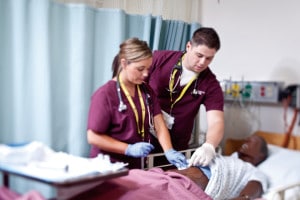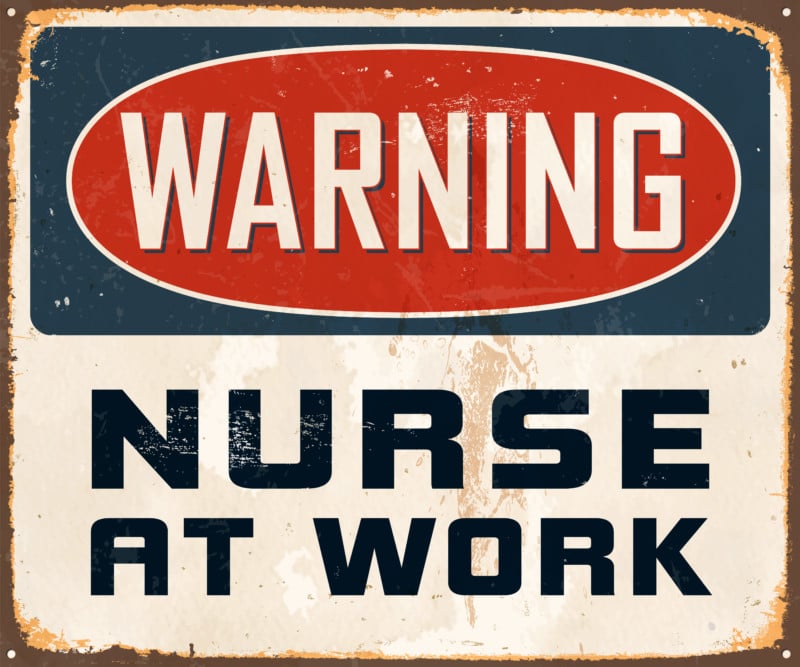What Is a Vocational Nurse & What Do They Do?
Are you thinking about a career in nursing? You can become a licensed practical/vocational nurse by getting a Certificate of Achievement and passing the National Council Licensure Examination for Practical Nurses, or NCLEX-PN, which means you could be working as a practical/vocational nurse in a little over a year! Many practical/vocational nurses continue their education to become a registered nurse by getting an associates, bachelors or master’s degree in nursing. Starting with your practical/vocational nursing certificate can be a great way to learn more about the profession and get going in your career.

Practical/Vocational nurses get to provide basic nursing care under the supervision of registered nurses and health care providers, including doctors, nurse practitioners, physician assistants and dentists.
Vocational nurse duties include:
- Monitoring patients’ health
- Administering basic patient care
- Providing for basic patient comfort
- Discussing care with patients
- Reporting patients’ status and concerns to registered nurses and health care providers
- Documenting patient status in medical records
Practical/Vocational Nurses will check their patients’ blood pressure and other vital signs, change dressings, administer medications and manage tubes, drains and catheters. They might also help patients bathe and dress and assist with feeding. Practical/Vocational nurses are an important part of a patient’s health care team.

Practical/Vocational nurses can work in many different settings. A majority of practical/vocational nurses work in nursing homes and long-term care facilities. They also work in hospitals, doctors’ offices, home health care agencies and correctional facilities. It’s an active job that involves a lot of time on your feet…you’ll definitely get your daily steps in here! Practical/Vocational nurses might help lift patients who have trouble moving in bed, standing and walking. The work schedule can be more flexible too. It’s not your typical 9-5 job – you can work weekends and overnights which could free you up to go back to school to further your nursing education during the day.
According to the U.S. Bureau of Labor Statistics there were 719,900 practical/vocational nurses working in 2014[1].
If you want to become a practical/vocational nurse, you’ll have to go to school for it. The Practical/Vocational Nursing program at Carrington College takes about a year to complete[2]. Once you graduate, you’ll be prepared to sit for the National Council Licensure Examination for Practical Nurses (NCLEX-PN)[3]. Your program will include a combination of classroom time and hands-on experience, including clinical rotations.
Practical/Vocational nursing is a rewarding career that you could be starting a year from now! If you want more information about Carrington College’s Practical/Vocational Nursing program[4] go to carrington.edu.
[1] http://www.bls.gov/ooh/healthcare/mobile/licensed-practical-and-licensed-vocational-nurses.htm
[2] Not including breaks.
[3] Carrington College prepares students to take appropriate certification and licensure exams related to their individual majors. The College does not guarantee students will successfully pass these exams or be certified or licensed as a result of completing the program.
[4] carrington.edu/degrees/practical-nursing/